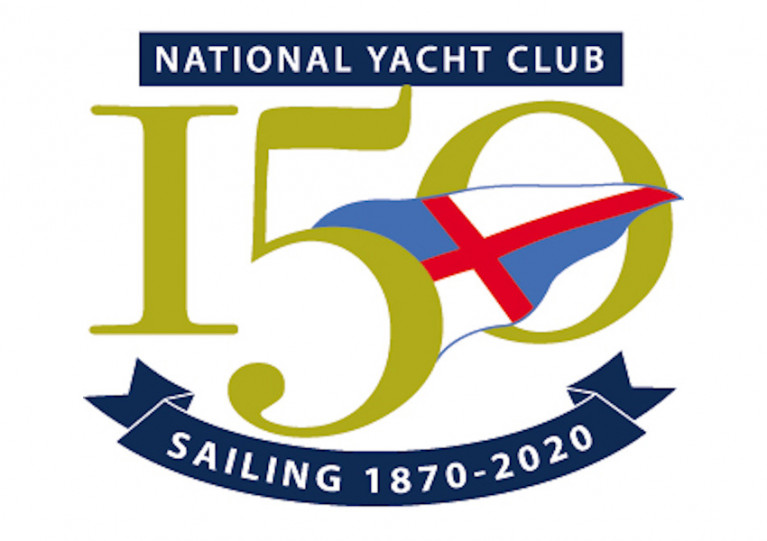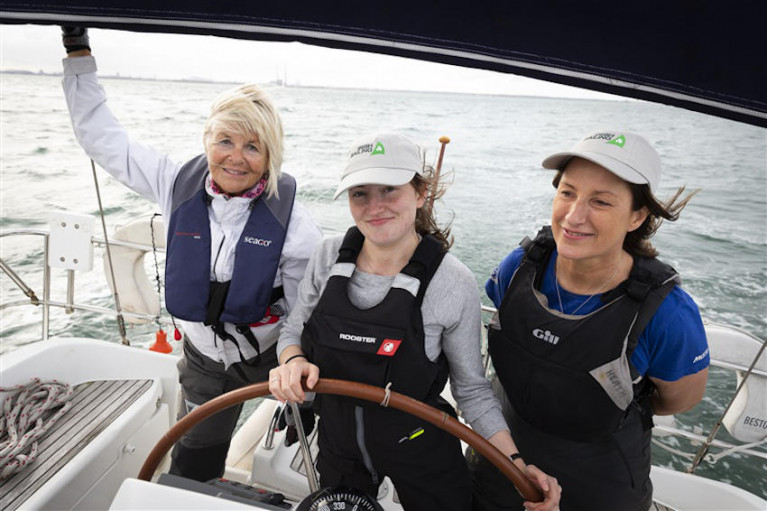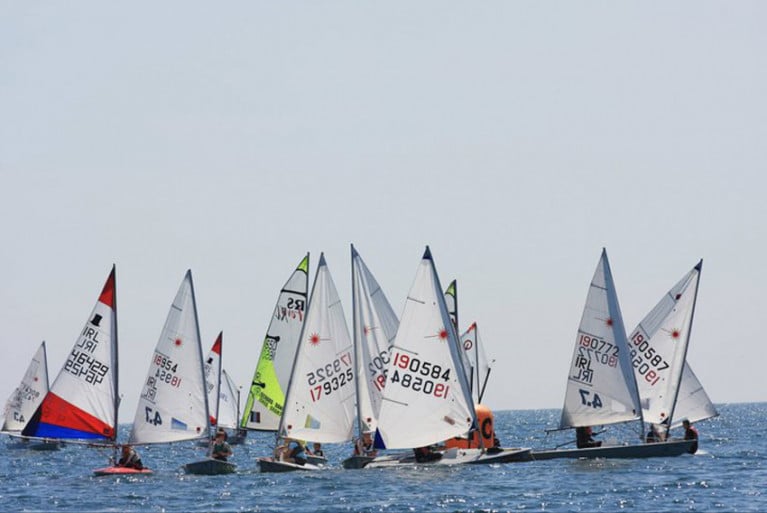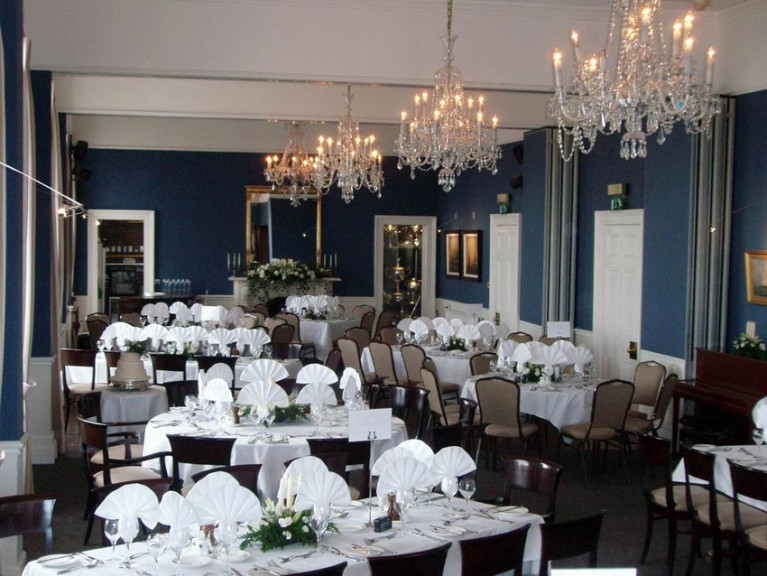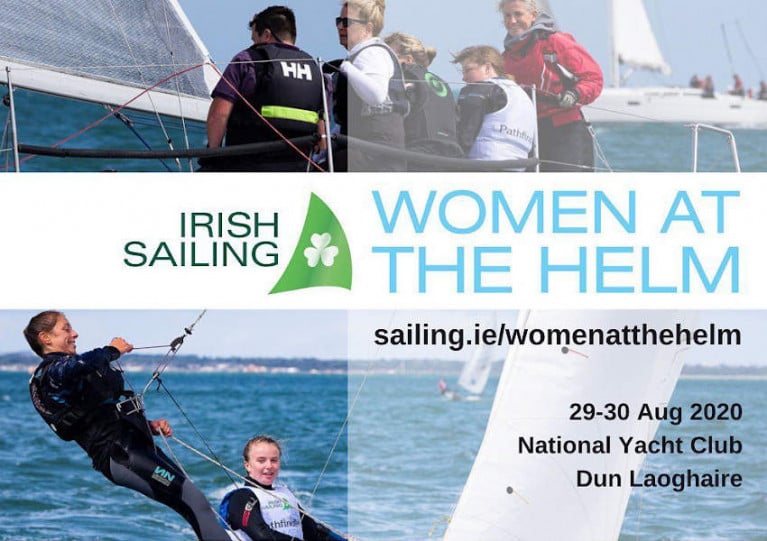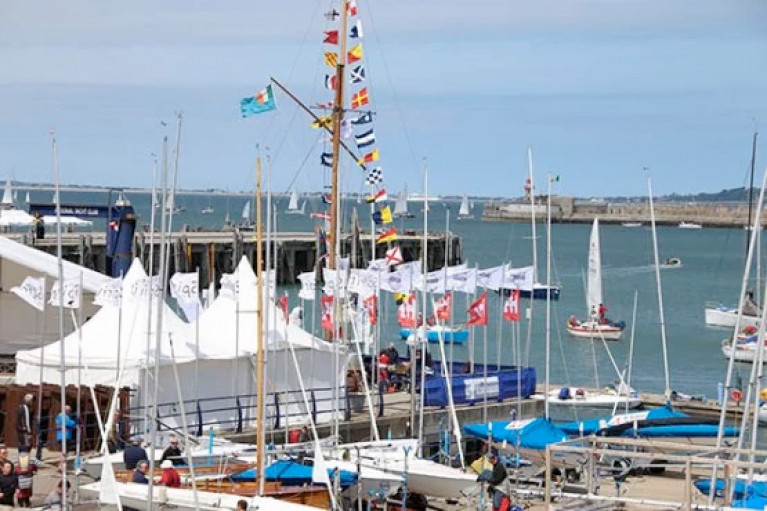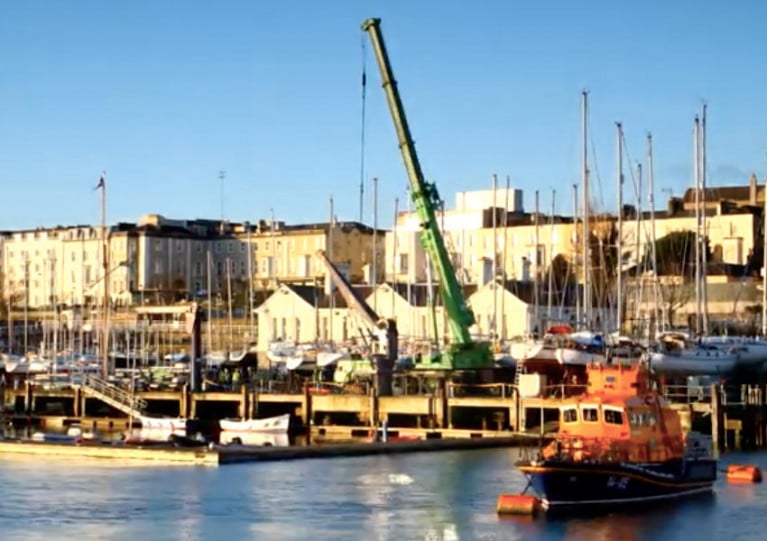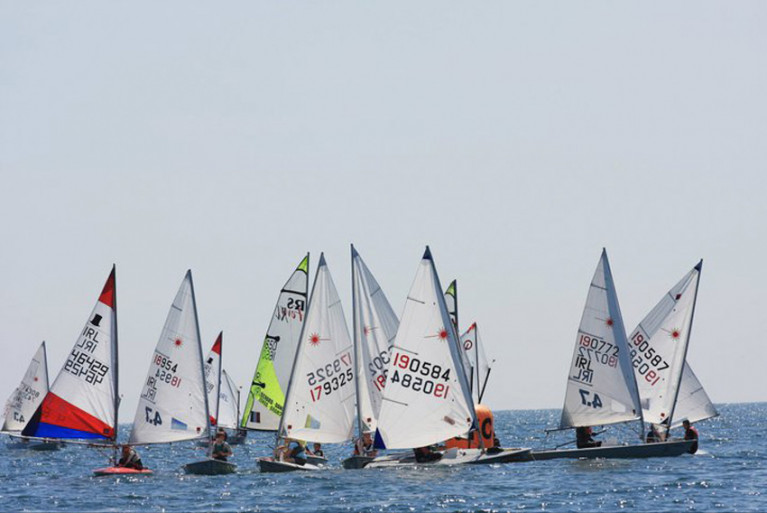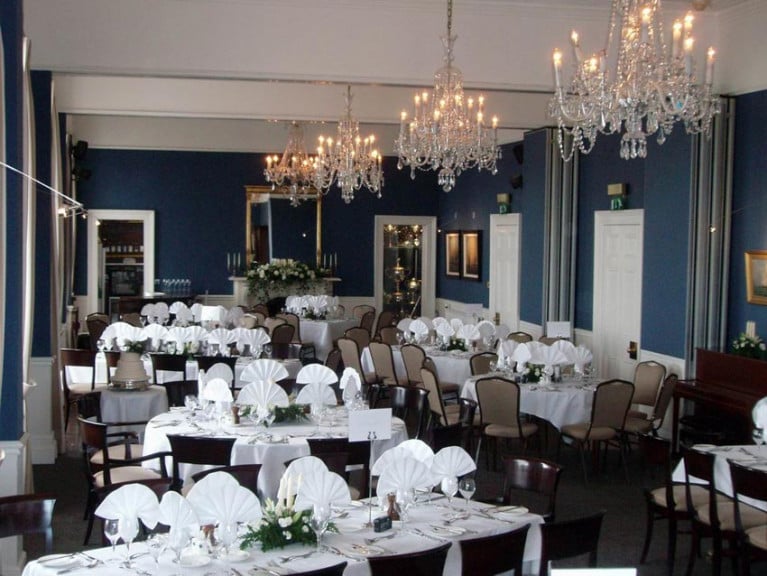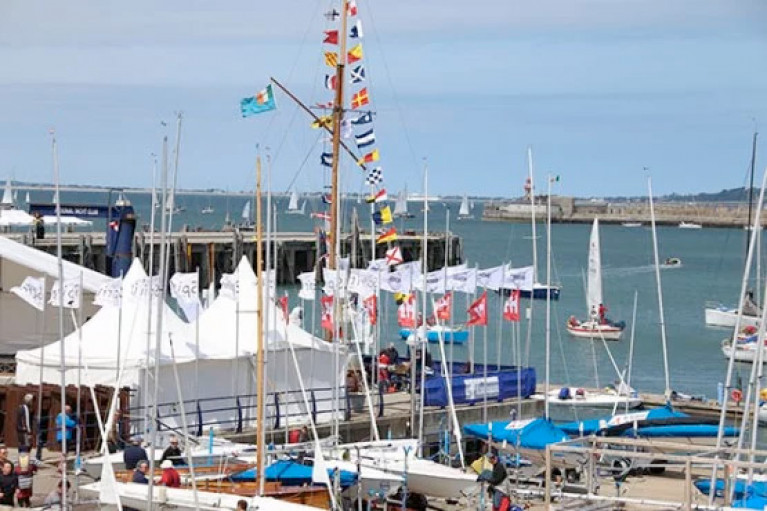Displaying items by tag: nyc
The Notice of Race and entry form are now available for next month’s Dun Laoghaire Regatta, celebrating the National Yacht Club’s 150th anniversary.
This special event, an initiative of all five Dun Laoghaire waterfront clubs, will take place over the weekend of 5-6 September and comprises the Rationel J80 National Championships and Shipman National Championships, as well as the respective Eastern Championships for the SB20 and 29er classes.
The Notice of Race is available to download below, and entry is online via the NYC website HERE.
Women At The Helm Regatta Cancelled Over Covid-19 Concerns
It is with great reluctance that Irish Sailing have decided, along with hosts the National Yacht Club, to cancel the Women at the Helm regatta that had been set to take place later this month, writes Gail McAllister.
Despite the tremendous energy behind the event, the health and safety of sailors is our number one priority, and in the light of the ongoing Covid-19 situation and the complexities arising from this it became clear that the event could not go ahead.
Irish Sailing are extremely disappointed for yet another event to be lost to Covid this year, but now look forward to next year and the Women at the Helm in Royal Cork Yacht Club on the weekend of Saturday 4th and Sunday 5th September 2021.
On a personal note, I would like to thank everyone for their incredible support and enthusiasm for Women at the Helm as an event and the Take the Helm campaign to encourage more women to move into positions of leadership. The campaign goes beyond the race course and creates leaders on committees, instructor teams and management.
The Transition Year Sailing Member Programme has run for a number of years between the Dun Laoghaire Waterfront clubs, and has proven important for keeping teenagers involved in sailing.
Heading into the 2020/21 academic year, another programme of youth sailing events has been established for the latest cohort of TY students — a challenging feat while coronavirus restrictions are in place, and as such it remains subject to change.
This year’s programme can only run if supported by volunteer parents. The National Yacht Club will be looking for assistance throughout the year, and parents will also be asked to volunteer during individual course registration sign-ups.
A summary of what’s been planned to offer during the school year is on the NYC website — families are asked to study this carefully before completing the expression of interest form, which should be submitted by this Friday 10 July.
Dun Laoghaire waterfront yacht clubs are preparing for their long-awaited reopening to members this week after the latest relaxing of coronavirus restrictions.
The National Yacht Club will throw open its doors to members from tomorrow, Tuesday 30 June, with revised opening and closing times to adhere to Government guidelines.
The clubhouse will be closed on Mondays but will be open from 10 am to 10 pm Tuesday to Saturday, with the clubhouse closing at 6pm on a Sunday.
Tea, coffee and scones will be available Tuesday to Sunday from 10.30am. Food service will run all day from 12pm to 8pm Tuesday to Saturday and Sunday lunch will be served from 12pm to 4pm.
Members will need to reserve a table by phoning the club on 01 280 5725 or by email to [email protected] [email protected] or [email protected]
The dining room will operate a strict two-metre social distancing regime which will be reflected in a maximum capacity of 50 persons.
The Bar will operate strictly in compliance with current regulations while the JB room will cater for pods and smaller group and also with a maximum capacity overall of 50 persons.
Once you enter the club you will be greeted and asked to sanitise your hands and to sign in (only the lead member of the booking need sign in), with an optional temperature check. You will then be shown to your table.
Alcohol will be strictly to table bookings only. There is no alcohol permitted in the Snooker Room, again in line with Government regulations.
Each table will be cleaned down and sanitised after use, and surfaces throughout will be sanitised, with bathrooms cleaned four times per hour.
Royal St George Yacht Club
Meanwhile, the Royal St George Yacht Club reopens its clubhouse for lunch at 12.30pm this Wednesday 1 July.
The club will comply with current guidelines regarding social distancing, contact tracing and an enhanced hygiene regime. A simple ‘one way’ circulation system will be in operation.
And as with the NYC, alcohol will only be served with meals, and bookings must be made in advance (up to 11am on day of booking). For full details see the RStGYC website HERE.
This event has now been cancelled over continued concerns surrounding Covid-19. For more see HERE.
The National Yacht Club has confirmed that its planned hosting of the Irish Sailing Women at the Helm National Regatta will go ahead as scheduled on 29-30 August.
Organisers are planning for a safe social and sailing environment and working within the Irish Sailing and Government guidelines to ensure the safety of all participants and volunteers, as well as the local community.
CANCELKLEDThe success of last year’s inaugural event at the NYC “shows what a great opportunity the regatta is to showcase the strength and leadership of women in sport and their ability to adapt in a changing environment”, the club said.
Women at the Helm aims to encourage women to move from shore to boat, crew to helm and club to regional event and generally to take on leadership roles in sailing.
The event is open to PY dinghy and keelboat racing from teens to seniors. Men are welcome to participate but crews must be at least 50% female and all boats must be helmed by women.
Expression of interest registration is now open, and sailors and volunteers can register their interest in helming, crewing, chartering or volunteering. The Notice of Race will be available shortly.
Clubhouse Upgrades And Plans In Works At National Yacht Club
In response to the continuing Covid-19 situation, the National Yacht Club has revised its plans for 2020 in preparation for the eventual resumption of sailing activity.
Commodore Martin McCarthy says cost and staffing adjustments have been made to complete some major maintenance works at the Dun Laoghaire waterfront clubhouse, including just-completed upgrades to the hot water system.
Another protect, the renovation of the wooden benches in the changing rooms, falls under the sustainability efforts that saw the NYC recognised as Sustainable Club of the Year (along with Bray Sailing Club) in Saturday night’s Irish Sailing Awards.
Commodore McCarthy said: “Grainne Ryan has led our effort on that front so congrats and well done to Grainne.”
In an email update to club members, the commodore added that “the fabric of the club and esprit de corps are vital assets we are working hard to protect” — as he confirmed plans are still in train for lift-in day on Saturday 11 April.
Meanwhile, many members are working on their boats and are encouraged to do so in compliance with physical distancing and Department of Health hygiene regulations.
“As a club, our primary focus is the welfare and safety of our staff and members,” Commodore McCarthy said. “Observing the guidelines on physical distancing as the storm of Covid-19 blows through in the coming weeks is a top priority.”
National Yacht Club Lift-In For Large Keelboats Set For Saturday 4 April
The National Yacht Club has scheduled its lift-in day for large keelboats stored on the hard this winter on Saturday 4 April, as the following weekend coincides with the Easter Bank Holiday.
Smaller keelboats boats on trailers will be launched with the club’s cranes (by appointment) during the previous week starting Monday 30 March.
All dinghies will have to be removed from the platform by the evening of Sunday 29 March.
In addition, the NYC has added some new dates to its special events schedule for 2020.
This coming Friday 15 February will see the American Song Book dinner and music night from 7.30pm, priced at €35 per person.
Joe Dunne and friends will host a Trad Night on Thursday 15 March (8pm, €10pp), while Saturday 9 May is the date for the Caviston’s fish night (8pm, €50pp).
For bookings contact Tim, Louise or Kristina at [email protected] or [email protected] or 01 280 5725.
Last Spots Remaining In NYC’s Youth Spring Training Programmes
Only a handful of spots remain for youth sailors in spring training programmes for Optimist, Topper and RS Feva sailors organised by the National Yacht Club for the 2020 season.
Spring training for Oppys runs for five Sunday afternoons beginning on 1 March. Only two places remain as of time of writing — to register (and optionally charter a club boat) see the NYC website HERE.
The Topper spring coaching programme is already under way, but a handful of places remain in the Advanced Racer and Improvers groups. More details and online registration can be found HERE.
And coaching for RS Feva juniors begins later this month on 23 February, with only two spots to spare. Details and registration HERE.
This month will also see a team racing clinic at the Royal Irish Yacht Club on Monday 17 and Tuesday 18 February during the upcoming midterm break.
The Irish Sailing-supported initiative for team racing is offered at the special price of only €25 for the two days of training, and is open to anyone (including non-club members) who has a competent level of sailing experience but is most suited to at least Level 3 or equivalent.
Sign-ups are still open for the Dun Laoghaire Youth Laser spring training programme, which continues this month with a focus on preparing 4.7 sailors for Easter trials and Radials for the Europeans at Ballyholme in July.
And dates have been finalised for NYC’s junior summer courses, each of two weeks’ duration:
- Course 1: Tuesday 2 to Friday 12 June
- Course 2: Monday 15 to Friday 26 June
- Course 3: Monday 29 June to Friday 10 July
- Course 4: Monday 13 July to Friday 24 July
- Course 5: Monday 27 July to Friday 7 August
These will involve the full suite of Irish Sailing levels (Start Sailing, Basic Skills, Improving Skills, Racing, Advanced Boat Handling, Adventure) over each course.
Dublin Bay Sailing Club in conjunction with Dublin Port will present a navigation talk at the next ‘Speaker Supper’ on Friday 21 February.
Patrick Cafferky will give the talk on ‘Marine and Navigation Safety from a Marine Pilot’s Perspective’ in the National Yacht Club dining room from 8.30pm, following supper at 7.30pm sharp.
The meal is €25 a head and all waterfront clubs are welcome to attend. To book please contact Tim at [email protected], Louise or Kristyna at [email protected] or phone 01 280 5725.
NYC Spring Match Racing Series 2020 Open To Expressions Of Interest
If you are interested in sailing in the National Yacht Club’s Spring Match Racing series this year, the club is now seeking expressions of interest on its website.
The online form is available HERE, and the NYC emphasises that it does not confirm you as an entrant as entries will be managed based on demand.
This year’s Spring Match Racing Series will run for six weekends from the weekend of Saturday 15 and Sunday 16 February.
The NYC has space for 12 teams (six on Saturdays, six on Sundays) and each day from 9.30am to 1.30pm will consist of one round robin of races in the clubs Elliot 6s.
The cost for the series will remain the same as the last series at €315 per team (€105pp if not a full team) plus damage deposit. This fee includes the use of all equipment needed as well as a free training weekend before the series starts.


























